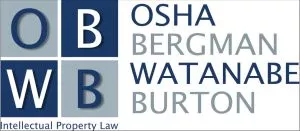China's legislature passed an amended Anti-Unfair Competition Law ("Amended Law") on June 27, 2025, which will take effect on October 15, 2025. This marks the third amendment to the law since its initial implementation in 1993. The number of Articles has increased from 33 to 41 by this amendment, reflecting an effort to adapt to new developments in the internet industry and directly address emerging issues of unfair competition online. The amendment aims to further improve fair competition rules within the digital economy.
The most striking aspect of the Amended Law is Article 7, which refines the provisions concerning acts of unfair competition involving confusion. It explicitly defines the unauthorized use of another's "new media account names, application names, or icons" that have a certain influence as acts of confusion. To better align with the Trademark Law, it clarifies that unauthorized use of another's registered trademark or unregistered well-known trademark as a trade name within an enterprise name, leading others to mistakenly believe it is another's goods or that there is a specific association with another, constitutes an act of confusion. Furthermore, it regulates the use of search keywords, stipulating that setting another's product name, enterprise name (including abbreviations, trade names, etc.), registered trademark, or unregistered well-known trademark as search keywords, leading others to mistakenly believe it is another's goods or that there is a specific association with another, constitutes an act of confusion. Additionally, the Amended Law stipulates that business operators shall not assist others in committing acts of confusion.
Equally noteworthy is Article 13 of the Amended Law, which introduces new regulations concerning online unfair competition. This article stipulates that business operators are prohibited from using data, algorithms, technology, or platform rules to influence user choices or otherwise obstruct or disrupt the normal operation of online products or services legitimately provided by other operators. Furthermore, business operators are forbidden from acquiring or using data legitimately held by other operators through fraud, coercion, or circumvention or disruption of technical management measures. The Amended Law also prohibits business operators from abusing platform rules to directly or indirectly engage in false transactions, fake reviews, or malicious return of goods against other operators.
The Amended Law also strengthens platform responsibility and the governance of low-price competition through amendments to several articles. It prohibits forced low-price sales, meaning platforms shall not compel or implicitly compel merchants to sell goods below cost. Platforms are now required to establish fair competition rules and a complaint-handling mechanism. If a platform discovers violation by an operator on its platform, it must take corrective measures and report to the regulatory authorities.
Additionally, the Amended Law refines traditional acts of unfair competition, including:
* For False Advertising: The scope of the target of misleading acts has been expanded from "consumers" to "consumers and other business operators," explicitly prohibiting the organization of fictitious transactions or false reviews.
* For Commercial Defamation: It is now prohibited to instruct others to fabricate false information to damage the reputation of a competitor. The target has been broadened from "competitors" to "other business operators."
* For Commercial Bribery: A new provision states, "Organizations and individuals shall not accept bribes," and individual accountability is clearly defined.
Finally, the Amended Law strengthens legal liabilities and regulatory measures against unfair competition. It adjusts the severity of penalties, raising the upper limits for fines related to the infringement of trade secrets, commercial defamation, and unfair competition online, and removing the lower limit for fines concerning false advertising. New regulatory tools have been introduced, allowing supervisory authorities to interview responsible persons of non-compliant enterprises and demand rectification. Additionally, the Amended Law now applies to acts committed outside China that damage the competitive order of the Chinese market." It's worth noting that although the 2022 draft revision intended to expand the scope of punitive damages, the amended law maintains its original application, limiting it solely to acts of trade secret infringement.
The content of this article is intended to provide a general guide to the subject matter. Specialist advice should be sought about your specific circumstances.



